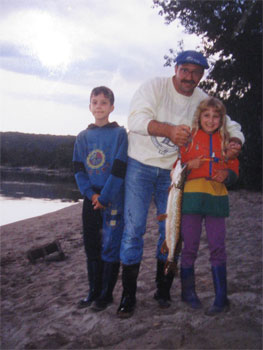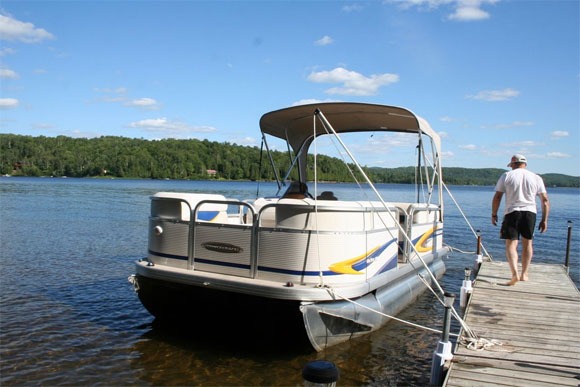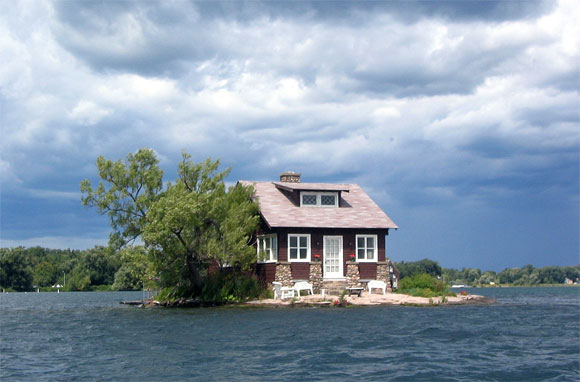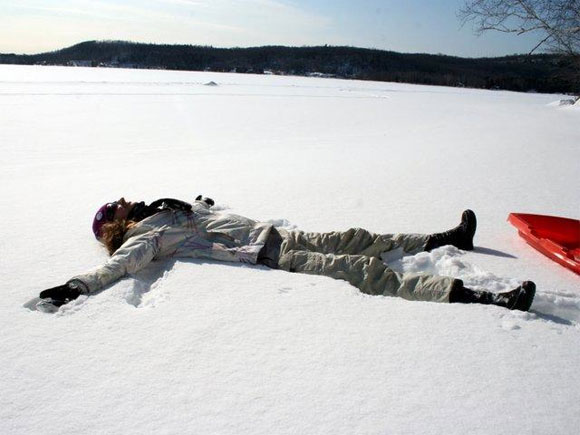Be it in the winter, for skiing purposes, or in the summer, to enjoy a little dip in a peaceful lake, many people appreciate spending their weekends or vacations in the countryside, away from the city’s turmoil. I have myself been regularly going to my parents’ chalet ever since I was 9 days old and, for me, there is no better vacation than returning week after week, even year after year, to my very own haven of peace.

Chalets are fun, everyone knows that, but does that mean that we should actually own that dream vacation house? Couldn’t we just rent it? While renting is usually considered the frugal option, owning a vacation house creates an attractive feeling of belonging and freedom. There are many pros and cons to buying a chalet, and potential buyers have a lot to take into account before making a commitment. Let’s discuss them.
Pros
Freedom. Owning provides you with a certain freedom that renting can’t offer. It also means that you always have a place to take a vacation. You can be spontaneous and decide to leave the stress of the city behind without having to make a reservation or even a phone call. When owning a holiday house, you have a chance to truly make it your home. Think about it, you get to leave your stuff there! You can invite as many people as you want, whenever you want. You have the full power of veto over furnishing and deco, and you can have as many pets as you like. Basically, it’s yours, and you can do whatever you want with it.
Appreciation & Income. Although owning a vacation home can prove very costly, as we’ll see later on, it also provides the potential for additional income. As you probably won’t be staying there year-round, you can occasionally rent it out and use the income to pay off a part of the mortgage or ongoing expenses. You can even use it for traveling or saving purposes. Most importantly, if you made sure to select a sought-after location without overpaying for the property–and if you maintain it properly–there is a good chance that you will benefit from its appreciation, aka capital gains.
Option for Retirement. Someday, your chalet can be the place to which you retire. My parents, for instance, have had this plan in mind for years.
Cons
Acquisition Costs. Coming up with the down payment for a vacation house can provide a significant blow to your savings.
Double the Trouble. Being entirely responsible for all home management costs (such as city and schools taxes, home insurance, electricity, water, heating, etc.) means that potentially costly monthly, annual and/or biannual expenses are to be expected. Also, don’t forget to take into account those increased gas bills – getting out of the city regularly means driving more. Its also worth noting that you should plan for the worst. What will happen if you loose your job? Can you still afford the property? Can you sell it quickly?
Other Ongoing Expenses. You have to pay for maintenance, repairs and renovations (expected and unexpected!) for both the interior and the exterior of your second property; furthermore, if your piece of heaven is in a remote area, you should also expect to have limited resources, which can lead to delays or additional costs.
Vacationing Restrictions. Let’s face it, having a second home is a costly business. Therefore, people usually find it wise to go there as much as possible, slowing down on camping or travelling to avoid spending even more money on vacationing. Therefore, even if you cherish the place, spending all of your vacations there might create a feeling of dullness or routine. Therefore, avid travelers should think twice before making the kind of commitment that can really tie them down to Canada, or they should review their financial situation to try and see if they can afford both; to have a second home and travel on a budget.
Now for the tough part. Buying a second home is likely to be your biggest investment after your primary residence; therefore, taking such a big step should never be rushed. You need to budget, to review your income as well as your needs – remember, it is a recreational property, so it should never be a burden. After budgeting, the most important step is to shop around until you find the property that is the right fit for your needs.
Yes, I’m ready to make that Vacation House Dream a Reality!
Here are a few things you might want to consider when trying to knuckle down exactly what you are looking for in a chalet:
Distance. Now that’s easy. Just ask yourself exactly how far you’re willing to drive every weekend to enjoy a bit of country dolce vita. Take into account that locations which are popular vacation destinations might mean you’ll have to sit through traffic jams once in awhile.
Road Access and Right-of-way. Some cottages are accessible through public roadways, but others can only be accessed through private roads or by water. Although public access is the most convenient option, some municipalities only maintain roads in the summertime (which isn’t much of a problem if you’re hoping to buy a summer house; however, if you mean to use your cottage year-round, you should look carefully into municipal snow removal procedures before making any commitment). If the roadway or part of it is privately owned, you need to make sure that there is a legally documented right-of-way (also known as an easement) which allows you to access your property. You should take into account that your property might be subject to easements in favour of your neighbours, in which case you cannot legally block their access. Also, it’s always good to ask for an up-to-date land survey or to have one made; without it, it’s impossible to be sure of land and water boundaries, road access and easements.
Lake Access. Having access to a lake is, of course, one of the biggest appeals of owning a cottage. However, a thorough reading of the municipal regulations is mandatory. If your thing is big boats and waterskiing, you’ll be sorry if you find out too late that motorboats are prohibited on the lake. You need to abide by the boat inspection requirements, if need be, and to make sure to have all necessary fishing and boat docking permits, amongst others.

~ It’s always nice to have your very own boat and dock. (Lac Cameron, Québec, July 2011)
Ski Hills or Trails. If you’re a regular skier or hiker, it’s only natural that you should take into account how close your potential recreational property is from major ski areas or national parks. Keep in mind that proximity to ski resorts or hiking trails is attractive for large numbers of future buyers.
Markets and Stores. It is possible to enjoy a bit of rural peacefulness while being relatively close to a market or a convenience store. It is very useful, as well as another thing potential buyers might be looking for.
Availability to Build. We’ve said it before: if your chosen chalet is in a remote area, you should also expect to have limited resources, which can lead to delays or additional costs.

~ Just sayin’… (Thousand Islands, Ontario (source: Wikipedia))
Water Supply. Water can come from a municipal or private system or well, or it can be drawn directly from a lake or river. Either way, you need to make sure that there is an adequate water supply. It is reasonable and recommended to take water samples and get them tested before you make a commitment. Not having a pure source of water is not such a big deal, though – you just need to budget buying lots of bottled water. At my parents’ chalet, for instance, we must always have some handy as the water is drawn from the lake (it is potable, but might make delicate stomachs a little fuzzy).
Waterwaste and Heating Systems. Remember to check on the status of any waterwaste or heating system servicing your property, as a dysfunctional system may lead to usage restrictions or expensive repairs. When it comes to heating systems, keep in mind that many cottages are heated through systems that don’t meet the current standards, which means that you might have a hard time finding an insurance company willing to insure your property.
Neighbours. If reading this article doesn’t make you want to have a little chat with you neighbours before you buy a cottage, I believe nothing else will!
Cottage Demolition or Vacant Land. If you are buying a property with an intent to demolish and rebuild, or if you’re buying a vacant plot with an intent to build, it is mandatory to read through all municipal regulations to make sure that you are allowed to build what you intend. For example, it might be provided that a cottage can only be rebuilt within a certain period of time after its demolition, and as long as it is the same size or smaller.
Zoning and Permitted usage. Typically, recreational properties are zoned “SR” (Seasonal Residential). If it is your intention to use the property for another purpose, inquire about the possibility of having the property rezoned, and about the associated costs. Municipal regulations usually define the permitted usage.
Phew! There are lots of things to take into account, right? But for those moments of joy and peace, I will gladly go through it all in a few years. What about you?

~ Isn’t this the perfect place to be a kid again? (Lac Cameron, Québec, December 2011)
